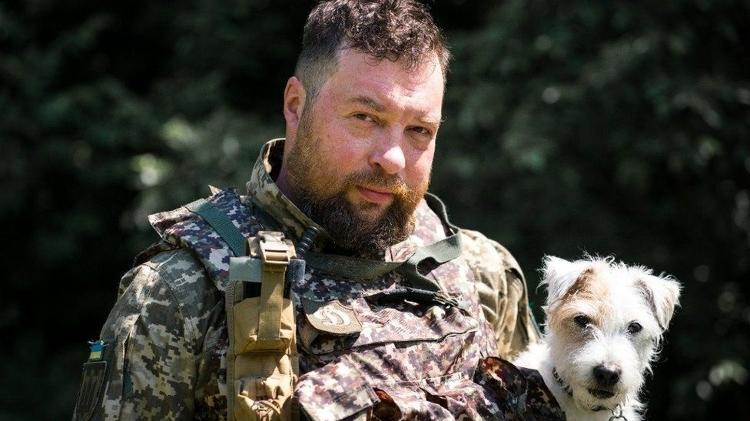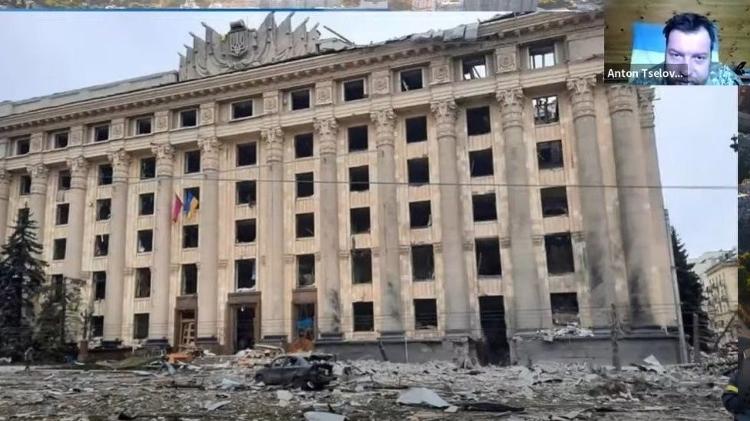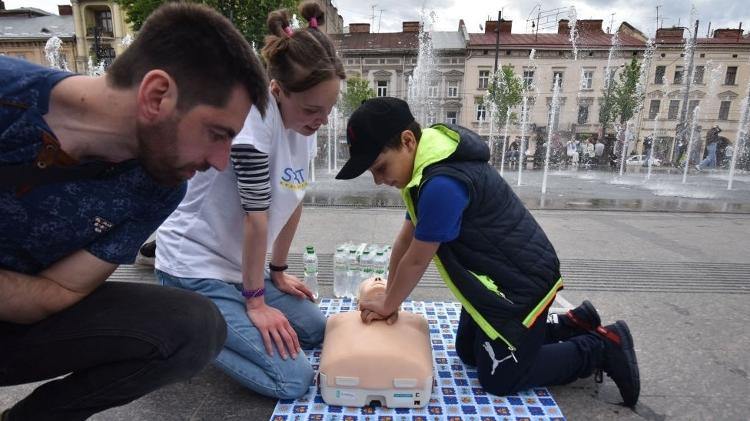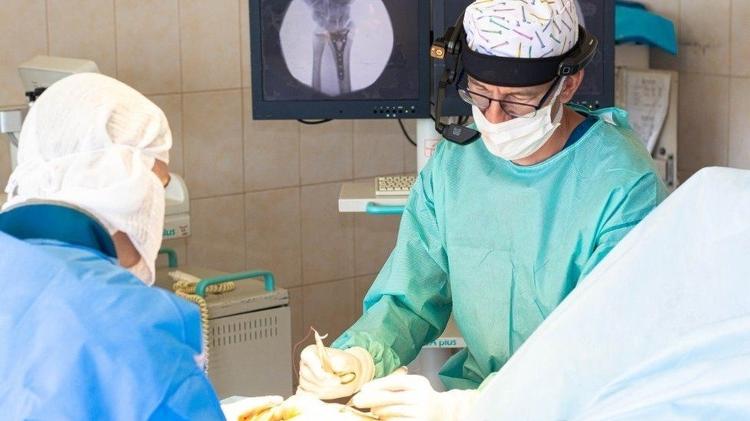Many teachers entered the war out of the need to defend their country. Some continued their cell phone lessons in the trenches.
It’s an ordinary Monday morning in Ukraine and Fedir Shandor launches his internet connection to teach his classes online.
University professor has been teaching virtually since the start of the covid-19 pandemic. In recent months, Shandor has continued to teach online for another reason: It is at the forefront of the conflict with Russia.
The 47-year-old enlisted in the army after the Russian occupation but was worried because he wanted his students to continue studying.
The result of this? Twice a week he lectures directly from the trenches on his mobile phone on topics such as tourism and sociology.
“I’ve been teaching for 27 years. I can’t just leave it. I’m good at it,” she told the BBC.
Shandor has taught in the Armed Forces since the Russian invasion of Ukraine began in February.
He enlisted in the army because he wanted to fight for his country and protect his wife and daughter. “I had to stop the Russians before they came to my house,” he says.
His dedication to work has also helped him maintain high attendance numbers in his classes.
“Even students who used to miss classes now attend all of them,” says one of her students, 20-year-old Iryna. “He always told us that we should be smart, that we are fighting for a smart nation,” the young woman adds.
background noise
But teaching in the trenches is not easy, and students had to get used to hearing bombs in the background.
“During the lesson, the noises were very loud and the students heard everything. I soon hid in the trenches and continued teaching,” he says.
In the middle of the conflict, he also managed to show his students the shrapnel and teach them different missiles.
Shandor’s lessons are also new to his fellow soldiers, who often follow these moments and take pictures of him at work.
One of these photos of him holding his cell phone in a trench was posted online and went viral in Ukraine. Since then, many artists from all over the country have made drawings and cartoons of the moment.
“Best Distraction”
Shandor is not the only teacher fighting at the forefront of the conflict. According to the Minister of Education of Ukraine, Serhiy Shkarlet, about 900 teachers have joined the Armed Forces so far.
“We are proud of each one of them,” he said. “We also have people in the Ministry of Education who have joined the Ukrainian armed forces,” the minister said.
Another case is that of Anton Tselovalnyk.
His classes were interrupted for the first two weeks of the war, but after a while the schools he worked at started sending messages asking for help.
The 42-year-old responded immediately, choosing to teach directly from the trenches or from nearby barracks. Nothing can stop him, not even the cold.
In the beginning, she says, it’s not about teaching kids, it’s about talking and supporting each other. “The kids used to go to school every day, and suddenly everything stopped.”
Tselovalnyk teaches students about architecture from primary to high school.
“The most important thing now is to maintain the link between your past and your future. That’s how I teach now,” she says.
One of her students, 17-year-old Viktoria Volkova, says Tselovalnyk’s classes are fun and help keep students in good spirits.
“This is the best distraction,” says the young woman. She says her teacher often showed the class around her place, told about the trenches she helped build, and where she sat to watch the stars.
“During the lessons he is thoughtful and caring. He always asks for comments and tries to make the subject interesting for us,” adds Volkova.
virtual surgery
Other teachers like Maksym Kozhemiaka use their medical knowledge to aid the military in Ukraine.
The 41-year-old professor of traumatology at Zaporizhzhia State University realized that it could be useful in the city’s military hospital and offered help.
After working at the construction site for a few days, she found a way to help her students continue their work as well.
“We thought we could take the classes online,” he says. “We already had online teaching experience during Covid,” he notes.
And so, after the first two difficult weeks of the war, Kozhemiaka continued to teach, allowing his students to virtually observe him as he operated.
It uses a combination of live classes and augmented reality for students to attend and discuss surgeries, even in their own homes.
“We teach doctors and young students how to treat war wounds,” he explains.
Daryna Bavysta has been following Kozhemiaka’s virtual classes and says she’s learned a lot.
“Now I understand everything that happens in the operating room,” he says. “Maksym explains everything live online during his surgeries: what he does and how he does it,” he says.
But he is worried about his teacher. “It’s hard not only psychologically, but also physically: you want to give everything to the people you treat. Our soldiers,” he says.
Leaving classes was not an option for Kozhemiaka.
“Teaching is my life’s job,” she says. “I couldn’t give up. We were on the right track as a country before the war and still are, so we must fight and stay united for our victory.”
“It’s important to keep working on what you’ve done before. Why would a war stop us?”
Collaboration with Svitlana Libet.
– This text was originally published at https://www.bbc.com/portuguese/internacional-62032171.
Did you know that the BBC is also on Telegram? subscribe to the channel.
Have you watched our new videos on YouTube?? Subscribe to our channel!
source: Noticias
[author_name]



